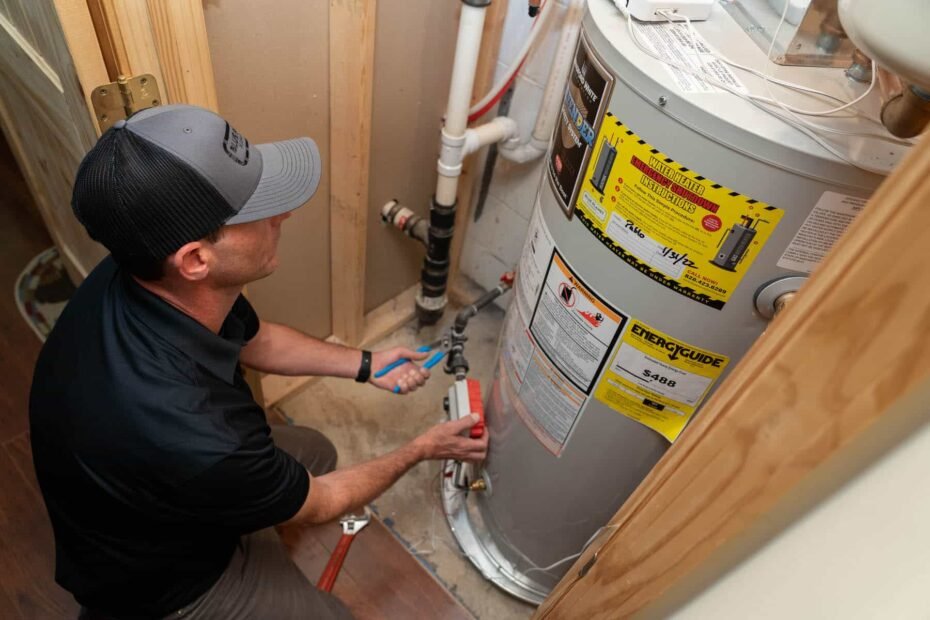In the realm of commercial plumbing, where reliability and safety are paramount, the significance of backflow prevention devices, along with rigorous testing and maintenance protocols, cannot be overstated. One crucial area where these measures are indispensable is within water heaters. At Willis Mechanical, we understand the gravity of safeguarding water purity and integrity, making the integration of these practices a cornerstone of our service. In this comprehensive guide, we delve deep into the importance of backflow prevention devices, testing, and maintenance in water heaters, elucidating their role in ensuring a continuous supply of clean and safe water.
Understanding Backflow and Its Risks
Before delving into the specifics of backflow prevention devices, it’s imperative to grasp the concept of backflow itself. In plumbing systems, backflow refers to the undesirable reversal of water flow, potentially leading to the contamination of potable water with non-potable substances. This reversal can occur due to various factors such as back-pressure or back-siphonage, both of which pose significant health risks.
In the context of water heaters, backflow can occur when there is a sudden drop in water pressure within the system, causing contaminants to flow back into the clean water supply. This contamination can originate from sources such as chemicals, bacteria, or even sewage, presenting a severe hazard to health and safety.
The Role of Backflow Prevention Devices
To mitigate the risks associated with backflow, the installation of backflow prevention devices is imperative. These devices are specifically designed to prevent the reverse flow of water, thereby safeguarding the integrity of the potable water supply. In the case of water heaters, backflow prevention devices act as crucial barriers against potential contamination.
One commonly utilized backflow prevention device in water heaters is the check valve. This valve allows water to flow in one direction only, effectively preventing backflow scenarios. Additionally, pressure-reducing valves and vacuum breakers are employed to further fortify the system against backflow incidents.
Testing Procedures
Ensuring Compliance and Effectiveness While the installation of backflow prevention devices is a critical first step, their efficacy must be regularly verified through rigorous testing procedures. Backflow testing is crucial to ensure that these devices function optimally, preventing any potential backflow incidents that could compromise water quality. At Willis Mechanical, we adhere to industry standards and regulations, conducting comprehensive backflow testing to ensure the continued protection of water quality in water heaters.
Testing typically involves the assessment of pressure levels, valve functionality, and overall system integrity. This process is carried out by certified professionals who possess the requisite expertise and equipment to accurately evaluate the performance of backflow prevention devices. By adhering to a systematic testing regimen, potential vulnerabilities can be identified and addressed proactively, thereby minimizing the likelihood of backflow incidents.
Maintenance Protocols
Sustaining Optimal Performance In addition to testing, regular maintenance is paramount in upholding the efficacy of backflow prevention devices in water heaters. Maintenance tasks may include inspections, cleaning, and adjustments to ensure that all components function optimally. Any signs of wear, corrosion, or malfunction must be promptly addressed to prevent compromised performance.
Furthermore, proactive maintenance serves to extend the lifespan of backflow prevention devices, thereby optimizing the return on investment for commercial entities. By partnering with a reputable plumbing service provider like Willis Mechanical, businesses can benefit from customized maintenance plans tailored to their specific needs and operational requirements.
Prioritizing Water Safety and Compliance In conclusion, the importance of backflow prevention devices, testing, and maintenance in water heaters cannot be overstated. These measures are essential not only for safeguarding water purity and integrity but also for ensuring compliance with regulatory standards and mitigating potential health hazards.
Get A Professional
At Willis Mechanical, we recognize the critical role that these practices play in commercial plumbing systems, which is why we are committed to delivering comprehensive solutions that prioritize safety, reliability, and compliance. By partnering with us, businesses can rest assured that their water heating systems are equipped with robust backflow prevention mechanisms and supported by meticulous testing and maintenance protocols.
In a world where water safety is of paramount importance, investing in proactive measures to prevent backflow incidents is not just prudent—it’s imperative. Together, let’s uphold the highest standards of water quality and integrity, safeguarding the health and well-being of all stakeholders now and in the future.
